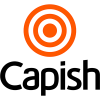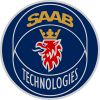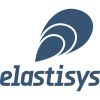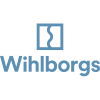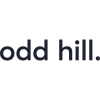Lean Tribe AI
Opportunities and challenges of Large Language Models
Join us for an evening of different experiences of AI.
First talk by Micael Gustafsson & Petronella Melén
Experiences from the demand side using digital health care as an example
Using LLM and AI in digital health is one of the ways to solve the huge demand for health care that we can see in front of us. But is it the solutions we have waited for? Micael and Petronella will elaborate on todays trends within digital health, how LLM can play a role for better health care and how to use AI and LLM for solving an existing problem - the lack of resources within mental health treatment.
Second talk by Kobra (Farzaneh) Etminani
Opportunities and challenges of Large Language Models within healthcare
Large Language models (LLMs) have emerged enormously recently and everyone is talking about threats come with them, for example ChatGPT. In this talk, I will shortly explain how LLMs are trained. Many have addressed the challenges with them, and I will mention them as well as the opportunities they can bring within healthcare domain.
Third talk by Behruz Bozorg
GPT by GPT / Fine Tuning a pre-trained Language Model
Nowadays LLMs are very trendy. Most of the successful language models are implemented and trained by giants in the field, e.g Google, OpenAI, Microsoft. Is there any room for small companies to efficiently train and use LLM's for their very specific tasks? I showcase such an effort and the challenges you can expect when training your very own LLM.
Fourth talk by Olof Bengtsson
Classifying Topics in Swedish Podcasts using LLMs
The podcast industry is constantly growing and many people listen to podcasts on a weekly and even a daily basis. Despite the popularity of the field, producers and content creators have access to far fewer tools for analyzing their work compared to traditional broadcast mediums, such as television and radio. One such tool could be to collect episode metadata and compare to listener behavior. In this presentation I will describe how GPT-3 was used to classify the topics covered as well as determine the sentiment in podcast episodes.
**All presentations will also be live streamed on YouTube, so anyone can watch it here without signup: https://www.youtube.com/FooCafeOrgMalmo/live
Speaker:
Petronella Melén - is a serial entrepreneur and has been working with digital health since 2017. She is the founder of Progress Me - a digital tool for people with eating disorder - and also Head of sales at Learning to Sleep - a digital sleep clinic for people with severe sleep disorder.
Micael Gustafsson - has been in the start up community in Malmo since 2007. With a mixed background from both tech and marketing he has founded several companies within media and digital health. Today he works as a portfolio manager for Dendera Venture in Malmö, but is also active in Cross Solutions in Lund and Learning to Sleep in Malmö.
Kobra (Farzaneh) Etminani - is an associate Professor, Docent, working at the Center for Applied Intelligent Systems Research (CAISR), Halmstad University, Sweden. She is Deputy Profile Manager for CAISR Health, a KKS-funded research profile. She is also part of the extended management group for Information Driven Care research program (IDC) at Halmstad University. She manages the Real-World Evidence (RWE) research projects together with Health Data Center (HDC), that includes several research projects together with Region Halland (a regional Swedish healthcare system), analytics companies, and big Pharma. She has worked on various topics and application areas within Machine Learning (ML), Artificial Intelligence (AI), Data Mining, and Deep Learning (DL) in the last decade, focused on healthcare, district heating, and mobility. Her main research interest is focused on solving real-world problems, which is focused on a healthier society, with the help of AI and ML, if possible and applicable.
Behruz Bozorg - specialization is in computational biology and he is experienced in mathematical/computational modeling and different optimization techniques. At the moment his main focus is machine learning and deep learning. Due to his background, he is experienced in algorithm/software development. C++, Python and MATLAB have been the main tools in most of his projects, though he is also familiar with data analysis, database technologies and SQL.
Olof Bengtsson - graduated in 2022 with machine intelligence as a specialization, where he was introduced to many new techniques in machine learning. In his Master’s thesis, he trained a model to classify the topics covered in a podcast, which I ultimately ended up deploying as a REST API service. Other projects include anomaly detection in energy consumption time series data.
Facilitator:
Kerstin Johnsson - has worked with deep learning software development for many years, for example with AI-assisted prostate cancer assessments and fingerprint authentication. She is a consultant at Softhouse Consulting, where she also develops their Applied AI capabilities.
Agenda:
17.30 - 17.45 – Meet & Greet
17.45 - 17.50 – Welcome - Introduction first speaker
17.50 - 18.02 – Presentation 1
18.02 - 18.05 – Intro second speaker
18.05 - 18.17 – Presentation 2
18.17 - 18.20 – Intro third speaker
18.20 - 18.32 – Presentation 3
18.32 - 18.35 – Intro forth speaker
18.35 - 18.47 – Presentation 4
18.47 - 18.50 – Short summary
18.50 - 19.20 – Meet & Eat
19.20 - 19.25 – Divide attendees in discussion groups
19.25 - 19.55 – Discussion in groups
19.55 - 20.00 – Thank you note
